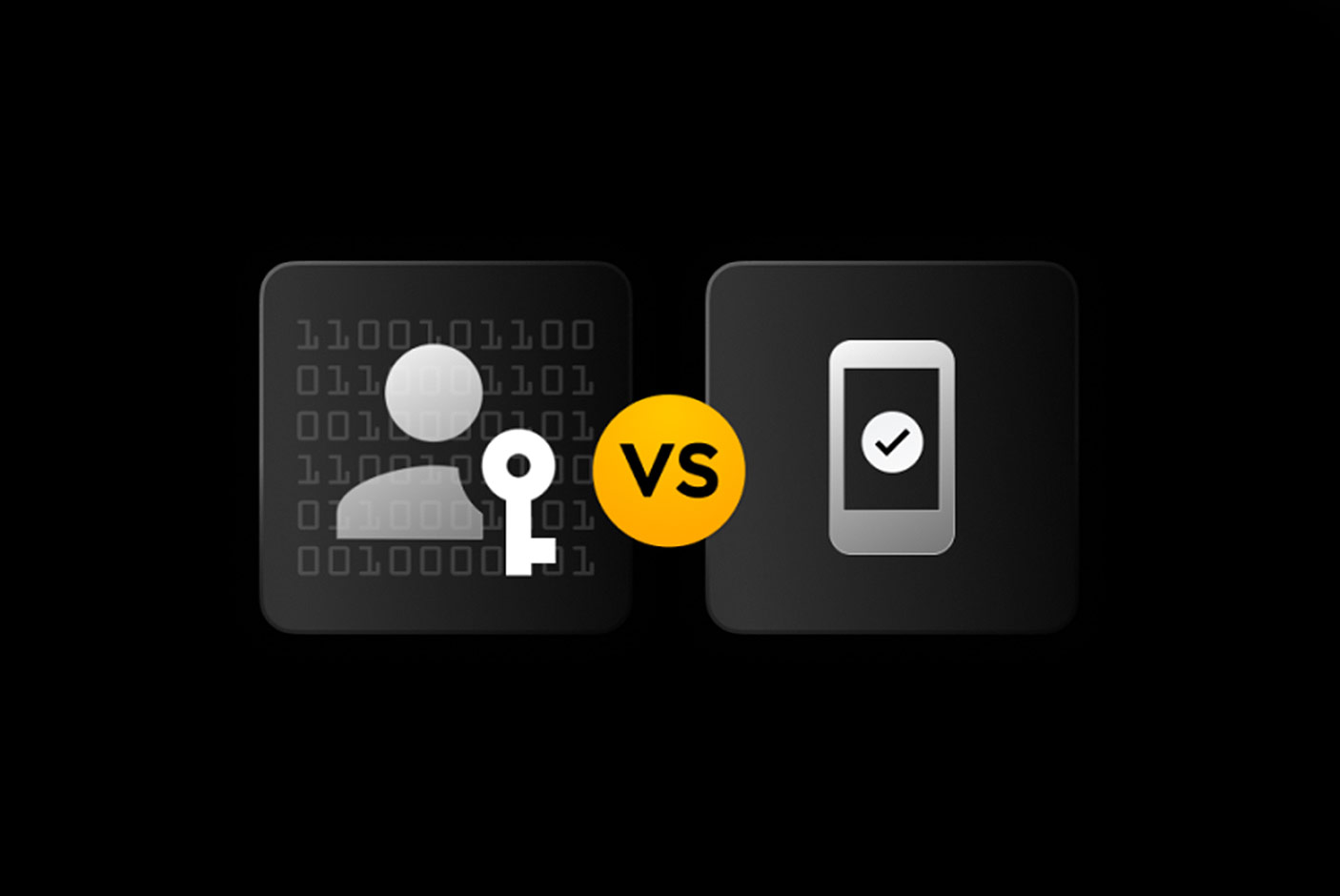The main difference between passkeys and 2FA is that passkeys completely remove the need for individuals to enter a password, whereas 2FA enhances the security of an account by requiring an additional method of authentication in addition to a traditional username and password.
Continue reading to learn more about the differences and similarities between passkeys and 2FA, and which is more secure.
What are passkeys?
Passkeys are a type of passwordless authentication that enables users to log in to accounts and applications without entering a password. Instead, passkeys leverage how you unlock your devices such as by entering a passcode, using your biometrics (e.g. Face ID, fingerprint) or using a swipe pattern.
What is 2FA?
Two-Factor Authentication (2FA) is a second form of authentication that is used to verify your identity after you’ve already entered your username and password correctly. When 2FA is enabled on an account, it adds an extra layer of security to ensure that only you have the means to access your account. Some examples of 2FA include the following:
- Time-based One-Time Password (TOTP) codes
- Biometric authentication
- Hardware security keys
- Security questions
- Passkeys used as a second factor
Key differences between passkeys and 2FA
Here are some of the key differences between passkeys and 2FA.
Passkeys completely remove the need to enter a password, 2FA doesn’t
When you enable passkeys on your account, you no longer need to enter a password. Since passwords are removed from the login process, your account is no longer susceptible to password-related attacks, phishing and data breaches. This differentiates from 2FA which enhances the security of your password-protected account by requiring an additional verification method, meaning your password is still vulnerable to compromise. However, this is what makes 2FA important to enable on your accounts since it greatly reduces the risk of your account becoming breached due to a compromised password.
Passkeys aren’t vulnerable to being intercepted, some 2FA methods are
Another key difference between passkeys and 2FA is that because passkeys are automatic (they don’t require the user to manually type anything), they’re not vulnerable to being intercepted, whereas some 2FA methods are vulnerable. Some of the most commonly used 2FA methods are 2FA codes sent through text message and email. While these 2FA methods are convenient, they’re also the least secure since they can be easily intercepted by cybercriminals, which increases the likelihood of your account being compromised. Cybercriminals can also use phishing tactics to get victims to reveal their 2FA codes.
While passkeys and 2FA have some differences, they share the similarity of being used to make accounts more secure by eliminating one-factor authentication, which refers to only signing in with a username and password.
Are passkeys more secure than traditional 2FA methods?
Yes, passkeys are more secure than traditional 2FA methods because they remove passwords, which are susceptible to password-related attacks, are phishing-resistant and support 2FA by design. Many people fail to enable 2FA because they find it difficult to use or don’t like the additional time it takes to log in with it. This often leads to people only securing their accounts with passwords and nothing else, making it much easier for cybercriminals to gain access to them.
With passkeys, users no longer need to worry about their accounts being less secure because they don’t want to enable 2FA. After all, passkeys require authentication before being used so 2FA is a part of the passkey login process.
Use passkeys to keep your online accounts secure
Passkeys should be set up on every website and app they’re available on. To see which apps and websites currently support the use of passkeys as a sign-in or Multi-Factor Authentication (MFA) method, check out our Passkeys Directory.
For websites and apps that don’t currently support passkeys, you’ll have to ensure your passwords are strong and have 2FA enabled. A password manager like Keeper® can aid you with creating and managing all of your passwords, passkeys and 2FA codes. By storing your passwords, passkeys and 2FA codes in Keeper, you’ll be able to access them from anywhere, no matter what device you’re using, making the login process more secure and convenient.
To see how Keeper Password Manager can aid you with securely managing your passwords, passkeys and 2FA codes, start a free 30-day trial today.
Source: Keeper





